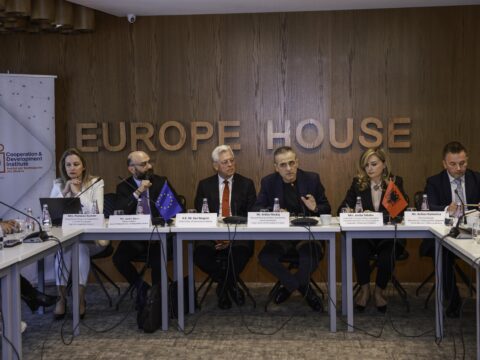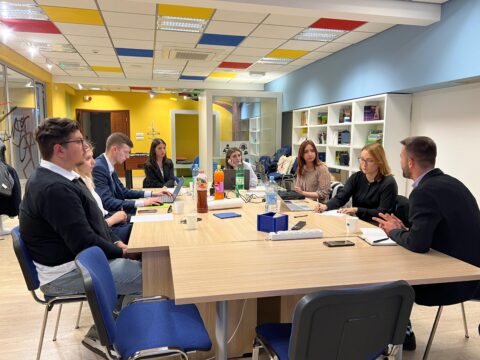Cooperation and Development Institute organized a workshop with journalists of social and health issues on “Information on fertility and stem cells”. This activity was organized in the framework of the activities of FUTURE MEDICINE project funded by the EC IPA Adriatic Programme 2007-2013.
The meeting was attended by representatives of the visual and written media, doctors, and representatives of the Institute of Public Health. Dr. Elide Tepelena, the obstetric gynecologist doctor explained to reporters about the situation of infertility in Albania. The media representatives reported for the difficulties in obtaining the quantitative data during their daily work. On the other side, always referring to the key factor of information, Doctor Tepelena said that the lack of information is also problematic for many couples in obtaining the answers to their questions and fears. As a leading cause of infertility especially among women, doctor Elide Tepelena and ISHP specialist Miranda Hajdini mentioned especially stress and lifestyle. Infertility may be temporary, but it may return permanent if it is not treated properly.
In vitro fertilization was a very interesting topic for the attendees. Science new protocols in terms of IVF were also discussed. Another issue that was affected was that of the stem cells. Sokol Dedja, bank manager of stem cells said that despite the importance, yet many doctors currently have no knowledge on stem cells. Preservation of stem cells, especially the cord ones, and their use in the future can cure over 80 diseases. According to Dedja, since almost 3 years Albanian parents have started to be more aware of the importance of preservation of stem cells for future treatment of the child or themselves. Stem cells can be stored for 20-25 years in the lab, with a temperature of minus 190 degrees and can be withdrawn at the time that the child or parent can have a disease that needs intervention.
The workshop was the occasion to also report the closure of the project Future Medicine and great interest shown by the media reports the need for further information and training sessions on how to adequately explain the public the new achievements the science has made possible.





